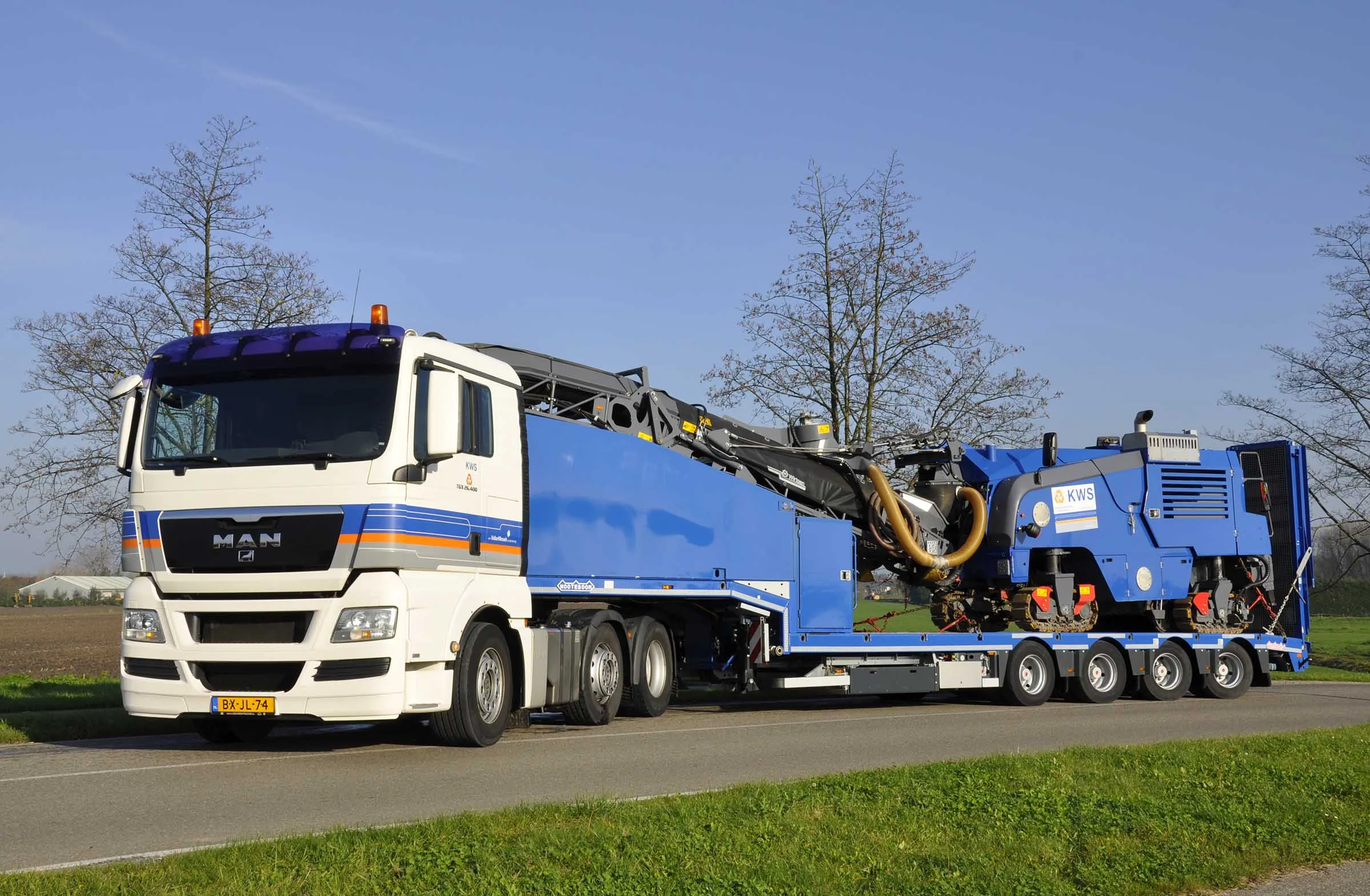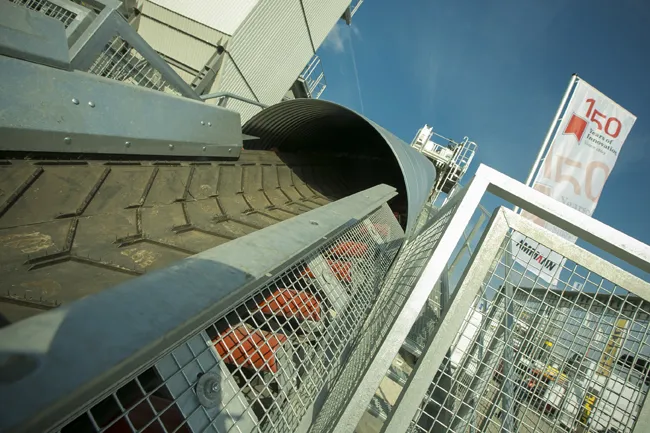Until recently the switch from self-steering axles to hydraulic steering required considerably more investment. But Nooteboom solved the problem with it’s latest generation MCOS semi low-loaders with hydraulic steering which are the optimal transport solution for the transport of medium-weight machinery up to 47tonnes.
Nooteboom’s SMART programme has made this a much more attractive proposition. The MCOS programme comprises 3-axle and 4-axle hydraulically steered semi low-loaders, with either a fixed or
May 19, 2015
Read time: 1 min

Until recently the switch from self-steering axles to hydraulic steering required considerably more investment. But 8109 Nooteboom solved the problem with it’s latest generation MCOS semi low-loaders with hydraulic steering which are the optimal transport solution for the transport of medium-weight machinery up to 47tonnes.
Nooteboom’s SMART programme has made this a much more attractive proposition. The MCOS programme comprises 3-axle and 4-axle hydraulically steered semi low-loaders, with either a fixed or extendible load floor.
Within this programme there are versions for specific sectors. In the Netherlands, an MCOS semi low-loader for1350 KWS Infra, is part of Royal VolkerWessels Stevin, is for the transport of road-building machinery.
Nooteboom’s SMART programme has made this a much more attractive proposition. The MCOS programme comprises 3-axle and 4-axle hydraulically steered semi low-loaders, with either a fixed or extendible load floor.
Within this programme there are versions for specific sectors. In the Netherlands, an MCOS semi low-loader for









